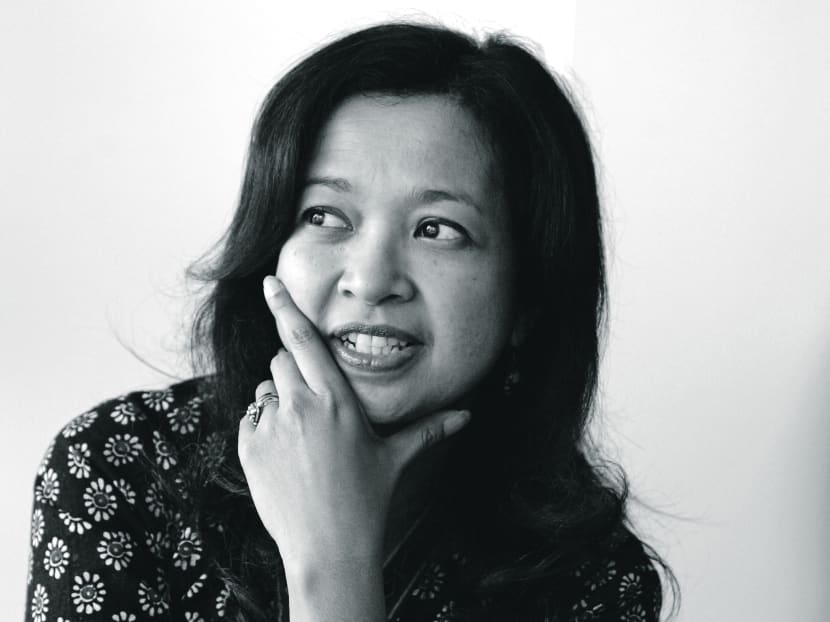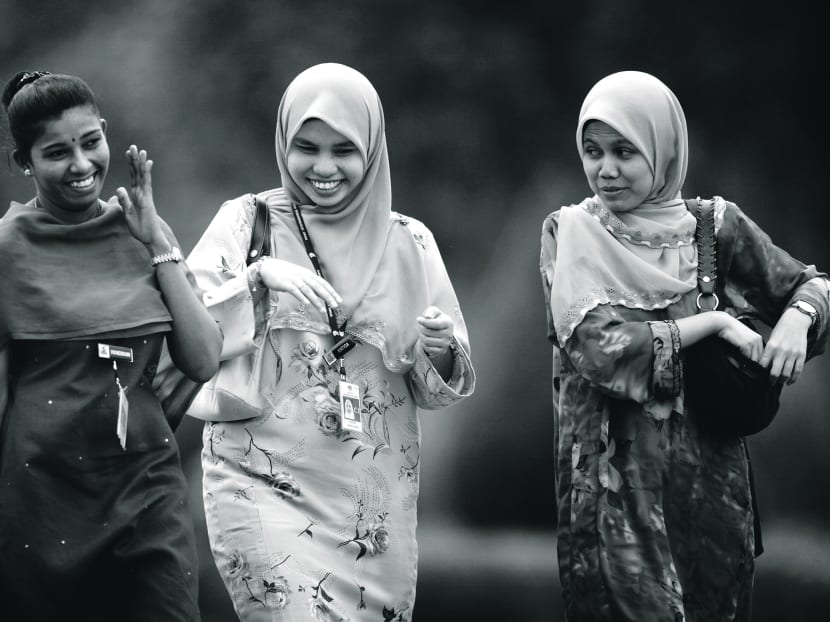When giving women wings is no good
If women’s rights activist Marina Mahathir had her way, political parties would do away with their “wings” — no more of these “old-fashioned” arms dedicated to the interests of groups like women or youth, for the “real power” lies in the main party.
If women’s rights activist Marina Mahathir had her way, political parties would do away with their “wings” — no more of these “old-fashioned” arms dedicated to the interests of groups like women or youth, for the “real power” lies in the main party.
“I personally don’t believe we should have wings at all, anymore. Wings are really old-fashioned,” she said over the phone from across the Causeway last week as I sought her thoughts on women in politics, her role as a woman leader in a Muslim country and the importance of flexible work arrangements.
Wings in political parties are “just a way of putting people in playpens and (saying), okay, we’ll give you this little playpen, you play there. But that’s not where real power is. Real power is in the main party and the main party is all men,” she continued.
Such are the structures in place today that stand in the way of women assuming a bigger role in politics — becoming Prime Minister, for example. In light of South Korea last month swearing in its first female President, Ms Park Geun Hye, I asked Ms Marina — daughter of Malaysia’s fourth and longest-serving Prime Minister Mahathir Mohamad — if she felt Singapore and Malaysia were ready to have a female Premier.
Both countries are ready for any woman who is capable, “but the system won’t allow it”, she replied. “The system is that the leader of the majority party becomes Prime Minister. And so, a woman has to go to a point where, in Malaysia, she would be leading UMNO … to become Prime Minister and I don’t see that happening anytime soon,” she said.
“Technically, anyone can stand for president of the party but it’s extremely difficult because you have to get everybody on board to vote for you. And the guys are not going to give up their position,” said Ms Marina, 55, a social activist and long-time campaigner for groups discriminated against, including those with AIDS and HIV.
In place of a women’s wing, caucuses could be held instead, she said. “Women’s wings really create a barrier between that and the main party.”
PUBLIC READY FOR WOMEN POLITICIANS
Both Singapore and Malaysia lack female representation in politics — with only one woman Cabinet Minister in each country, for instance, said Ms Marina. And it can be difficult gaining candidacy during elections at all, as a woman may not be the “first option” when parties think of candidates.
The wider public, however, is ready for women politicians, she believes.
“People on the ground, people who are not in political parties, are quite happy to have women. I think if we had direct elections, Ambiga Sreenevasan would be Prime Minister of Malaysia,” she said with characteristic candour, referring to the Co-Chairperson of civil society coalition Bersih, which pushes for clean and fair elections.
With the Malaysian elections due to be held by June, Ms Marina said Sisters in Islam — an advocacy group for justice and equality in Islam of which she is a board member — will campaign to have more women candidates and look closely at each party’s platform and manifesto “through gender lens”.
Ms Marina has never shied away from speaking her mind on a range of social issues, and her views can be read on her blog, rantingsbymm.blogspot.com, as well as regular columns in The Star newspaper. Recent columns include calls to stop prejudice and stereotyping, as well as violence against women.
The latter, penned in the wake of the gang rape of a female student in New Delhi, reminded readers that similar incidents have happened closer to home, and how the “onus, burden and shame is on the woman victim and not the perpetrator”.
Ms Marina told TODAY she was amazed by the outrage in New Delhi sparked by the gang rape. Women took to the streets demanding for change, prompting the Indian government to respond. There should be similar outrage when violence against women occurs in Malaysia, she said.
“We make noise but is anyone going to take to the streets? No. Does anything change? No. That’s the thing, I think we need to be more outraged by this,” she said.
FLEXI-WORK, FLEXI-HUBBY
I ask about another recent development that has made some women uneasy — tech company Yahoo!, headed by new mother Marissa Mayer, doing away with its policy of allowing employees to telecommute.
Flexible work arrangements are particularly helpful for women, who often take on duties like taking the children to school or the doctor, said Ms Marina.
She feels a combination of telecommuting and face-time in the office to be the best. “I work on my own and I have an office because I feel it’s necessary to be disciplined, to go to an office, but there are days when I think, I’ll just work from home and that’s all right too, because many things I do on the computer anyway,” she said.
On the home front, Ms Marina, who is twice married and has three children, said she is fortunate to have a “very flexible” husband in photographer Tara Sosrowardoyo. They are “equal leaders” and duties, such as parent-teacher meetings, largely depend on “whoever’s available”. It helps that his work is flexible and permits working from home, she added.
She has domestic help too, but thinks women in this part of the world are “kind of spoilt that way”, as their counterparts in some other countries also head out to work, but do so without hired help.
“I think there’s a cultural problem, in some ways, in that. We kind of think that if we go up the social scale, then we shouldn’t have to clean bathrooms,” she said. “We sometimes think this kind of jobs are below us if we want to see ourselves as successful, and I think that’s really a mindset that has to change.”
But for working women to cope without external help, the rest of the family has to chip in, she said.
PROBLEM WITH ROMANCE NOVELS
There is a tinge of pride in Ms Marina’s voice as she talks about being a role model for young women in Malaysia.
Plans are in the works to relaunch a television series targeted at young women by the third quarter this year. The series, 3R — Respect, Relax, Respond, ran on Malaysia’s TV3 from 2000 to 2009, and also on MediaCorp’s Suria in Singapore.
What sets it apart from other programmes is the “consistent philosophy” that men and women are equal, said Ms Marina, its Co-Executive Producer. “It’s enormously successful with young women because we’re being different, we’re respecting them. We’re telling them they have options, we’re giving them ideas, we’re showing them different role models, we’re telling them the world is theirs and they can do anything they want — which is a very different message than what they’re getting elsewhere.”
Islamic romance novels “very popular” in Malaysia, for example, tell young women to be “good, submissive wives”, she said. “It’s very popular because there’s no alternative.”
She said: “I think people here, especially young women, are yearning for a different role model. They see on television, in magazines, the same thing all the time — you have to be quiet and respectful and that is what a good Muslim woman is.
“And then they see me and people like Ms Zainah Anwar (women’s rights activist and founding member of Sisters in Islam), and we’re out there and we’re doing things, and we’re surviving and making sense to them. So they think, okay, why not?”
Catch Ms Marina Mahathir’s keynote speech, Are Women Ready to Lead?, at the Singapore Women’s Congress 2013 on March 22.
Tickets are at S$188 per person. More information at www.xinmsn.com/eve.








